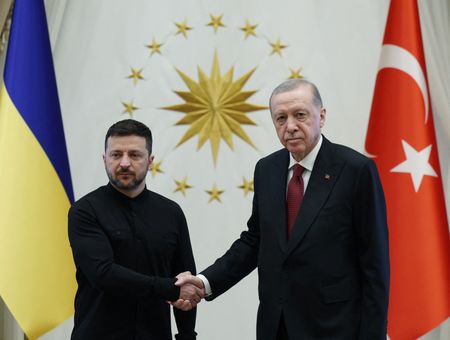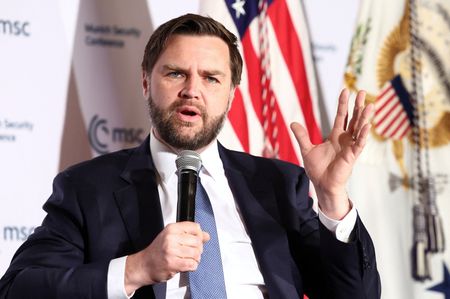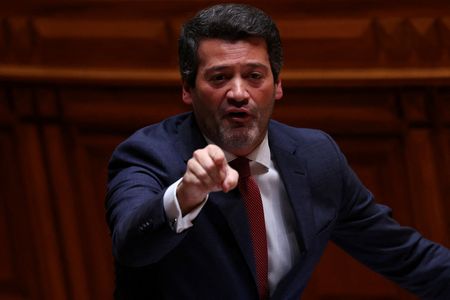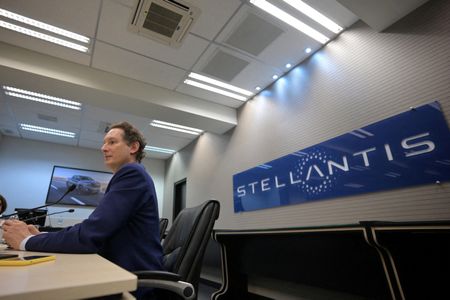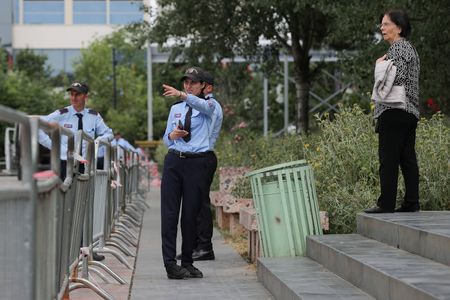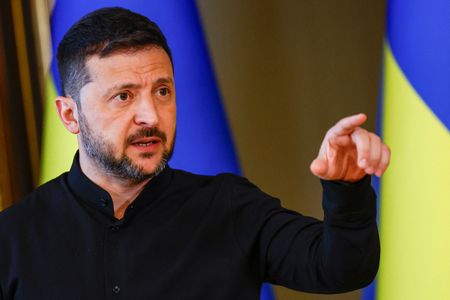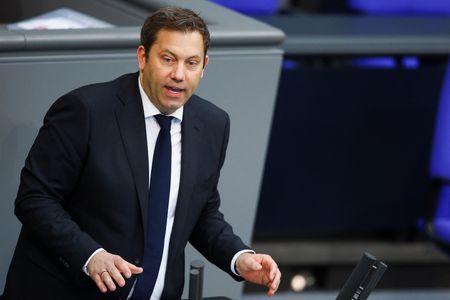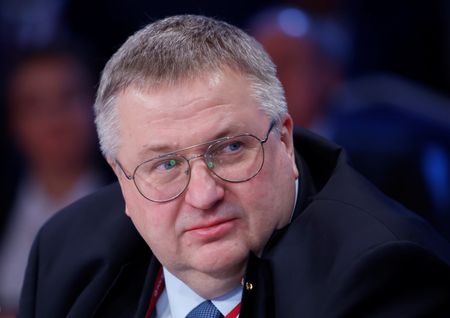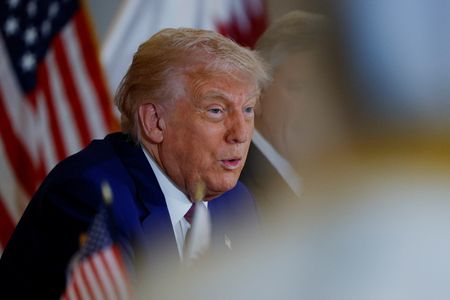By Tom Balmforth and Vladimir Soldatkin
ISTANBUL (Reuters) -Russian President Vladimir Putin sent a second-tier team of negotiators to hold peace talks with Ukraine in Turkey on Thursday, spurning Kyiv’s challenge to go there in person to meet President Volodymyr Zelenskiy.
Putin’s no-show plunged prospects for the talks – which would be the first since the early weeks of the war – into confusion. Russia said they would take place in Istanbul in the second half of the day, but Turkey said no meeting was scheduled yet.
U.S. President Donald Trump, on a tour of the Gulf, told reporters there would be no movement on peace talks in the absence of a meeting between himself and Putin.
“Nothing’s going to happen until Putin and I get together,” Trump told reporters aboard Air Force One before landing in Dubai. His comment seemed to further undermine the potential for diplomatic progress in Turkey.
The warring sides have been wrestling for months over the logistics of ceasefires and peace talks while trying to show Trump they are serious about trying to end what he calls “this stupid war”.
Hundreds of thousands have been killed and wounded on both sides in the deadliest conflict in Europe since World War Two. Washington has threatened repeatedly to abandon its mediation efforts unless there is clear progress.
Zelenskiy, arriving in Ankara, described the Russian line-up of Putin aides and deputy ministers as “decorative”. He said Ukraine would decide its next step after he had met Turkish President Tayyip Erdogan.
“We need to understand what kind of level the Russian delegation is, and what mandate they have and whether they can make any decisions,” he said.
Russia said its team was in Istanbul and ready for serious work, and accused Ukraine of “trying to put on a show” around the negotiations.
Asked if Putin would join talks at some future point, Kremlin spokesman Dmitry Peskov said: “What kind of participation will be required further, at what level, it is too early to say now… The Russian delegation is ready, and it is waiting in Istanbul.”
Russia said on Thursday its forces had captured two more settlements in Ukraine’s Donetsk region. A spokeswoman for Russian Foreign Minister Sergei Lavrov pointedly reminded reporters of his comment last year that Ukraine was “getting smaller” in the absence of an agreement to stop fighting.
PRESSURE FROM TRUMP
There was confusion in Istanbul, where some 200 reporters were gathered near the Dolmabahce Palace on the Bosphorus that the Russians had specified as the talks venue.
Zelenskiy had goaded Putin earlier this week by questioning if he was brave enough to show up. The Kremlin says Putin – who is also under threat of even tighter European sanctions to “suffocate” Russia’s economy – does not respond to ultimatums.
The warring sides last held face-to-face talks – also in Istanbul – in March 2022, only weeks after Putin sent his army into Ukraine.
After leaning heavily on Ukraine and clashing with Zelenskiy at an Oval Office meeting in February, Trump has shown increasing impatience with Putin in recent weeks and threatened additional sanctions to hit Russian trade.
The U.S. president said on Thursday he would go to the talks in Turkey on Friday if it was “appropriate”.
“I just hope Russia and Ukraine are able to do something. It has to stop,” he said.
‘NOT THE KEY PLAYERS’
If the talks do go ahead, they will have to address a chasm between the two sides over a host of issues.
The Russian delegation is headed by presidential adviser Vladimir Medinsky, a former culture minister who has overseen the rewriting of history textbooks to reflect Moscow’s narrative on the war. It includes a deputy defence minister, a deputy foreign minister and the head of military intelligence.
Key members of the team, including Medinsky, were also involved in the 2022 talks – an indication that Moscow wants to pick up where those left off.
But the terms under discussion then, while Ukraine was still reeling from the initial Russian invasion, would be deeply disadvantageous to Kyiv. They included a Russian demand for deep cuts to the size of Ukraine’s military.
With Russian forces now in control of close to a fifth of Ukraine, Putin has held fast to his longstanding demands for Kyiv to cede territory, abandon its NATO membership ambitions and become a neutral country.
Ukraine rejects these terms as tantamount to capitulation, and is seeking guarantees of its future security from world powers, especially the United States.
Zelenskiy backs an immediate 30-day ceasefire, but Putin has said he first wants to start talks at which the details of such a truce could be discussed.
French Foreign Minister Jean-Noel Barrot said Zelenskiy had shown his good faith by coming to Turkey but there was an “empty chair” where Putin should be sitting.
“Putin is stalling and clearly has no desire to enter these peace negotiations, even when President Trump expressed his availability and his desire to facilitate these negotiations,” he said.
Highlighting the level of tension between Russia and the U.S.-led alliance, Estonia said Moscow had briefly sent a military jet into NATO airspace over the Baltic Sea during an attempt by the Estonian navy to stop a Russian-bound oil tanker thought to be part of a “shadow fleet” defying Western sanctions on Moscow.
(Additional reporting by Can Sezer in Istanbul; Humeyra Pamuk, Tuvan Gumrukcu and John Irish in Antalya, Turkey; Huseyin Hayatsever in Ankara; Christian Lowe, Olena Harmash and Yuliia Dysa in Kyiv; Dmitry Antonov in Moscow; Andrius Sytas in Tallinn; Nandita Bose, Doina Chiacu and Susan Heavey in Washington; Lidia Kelly in Melbourne; Writing by Mark Trevelyan; Editing by Ros Russell)

